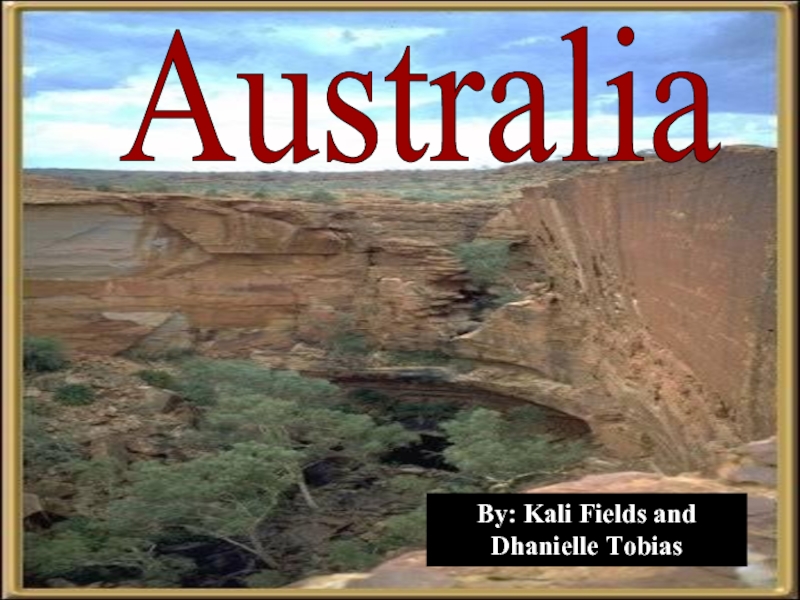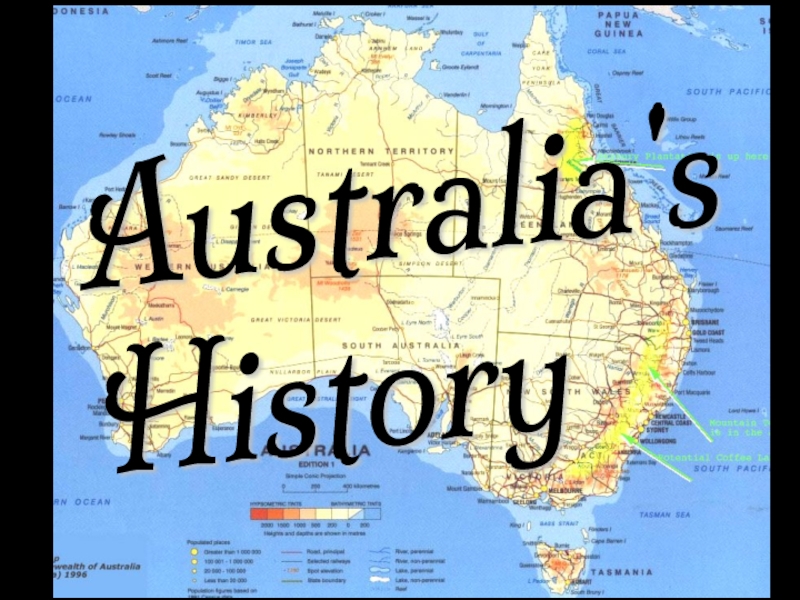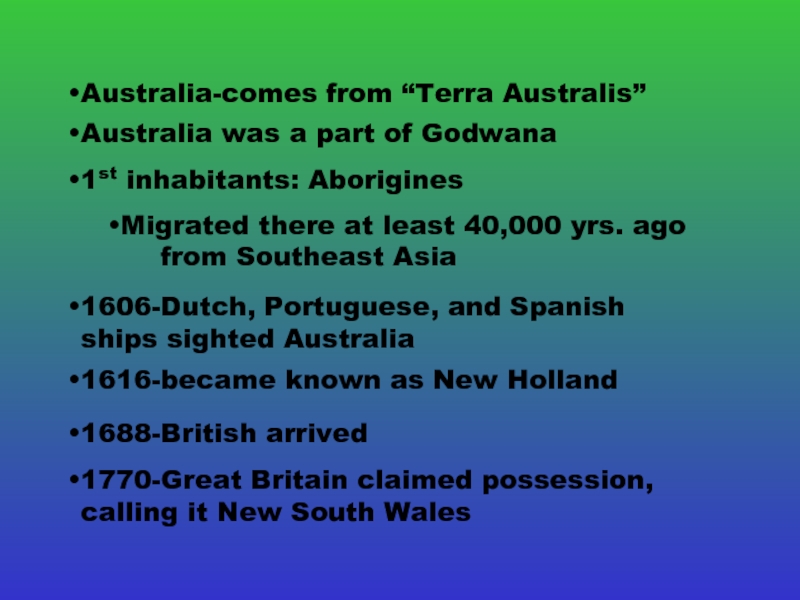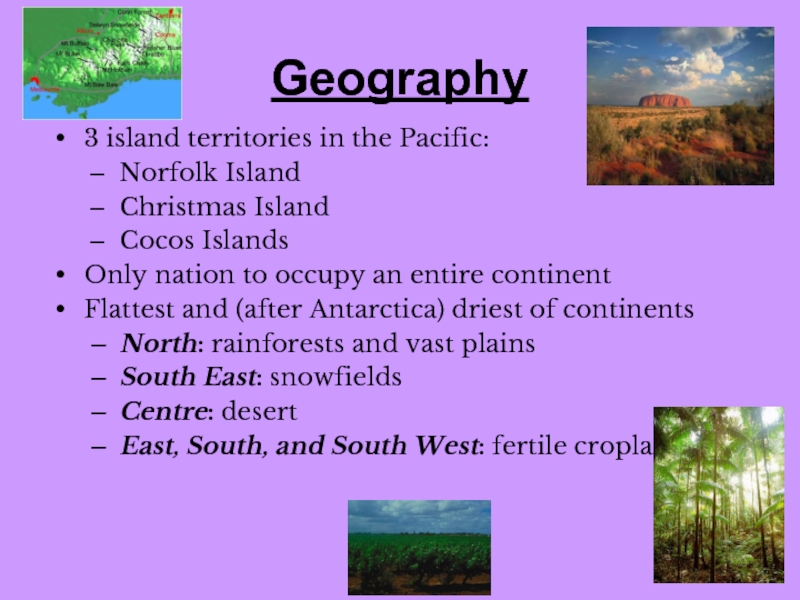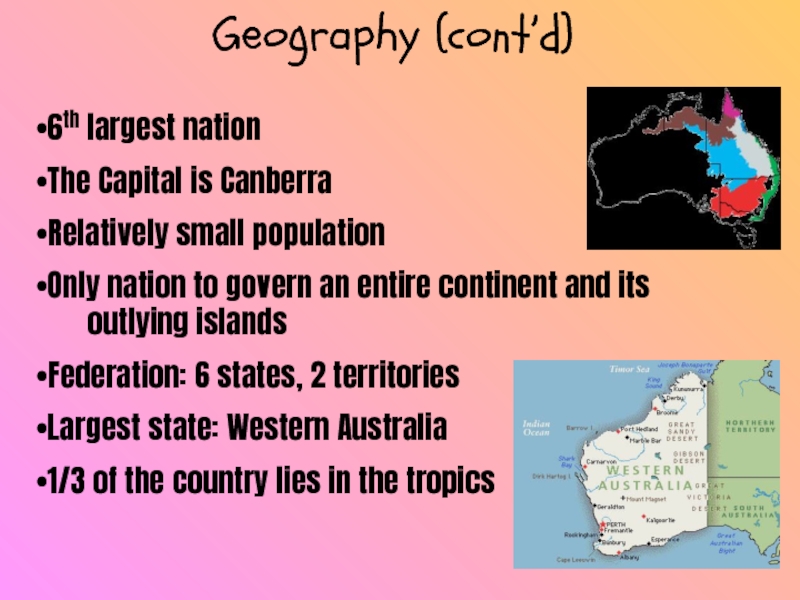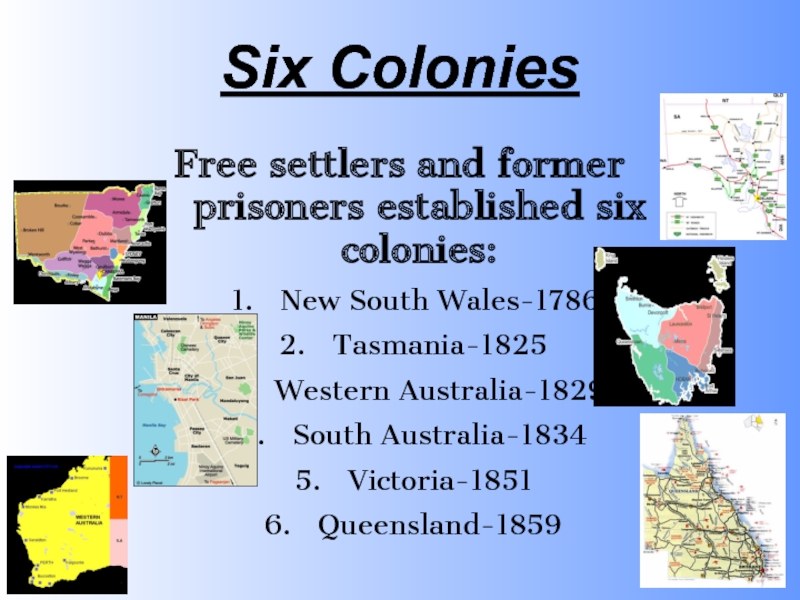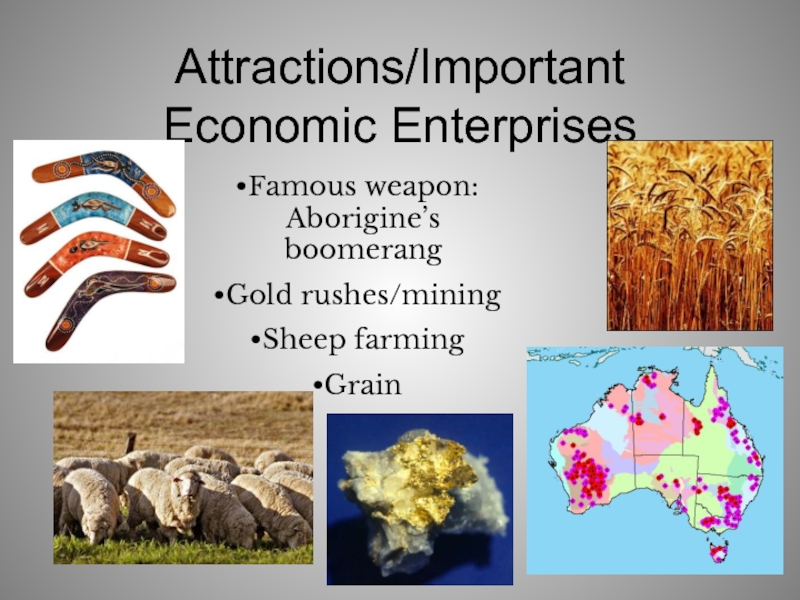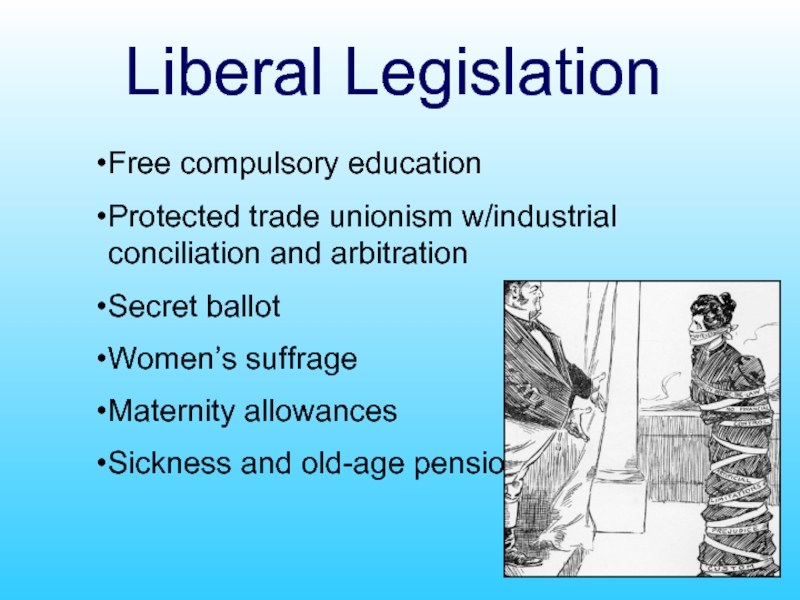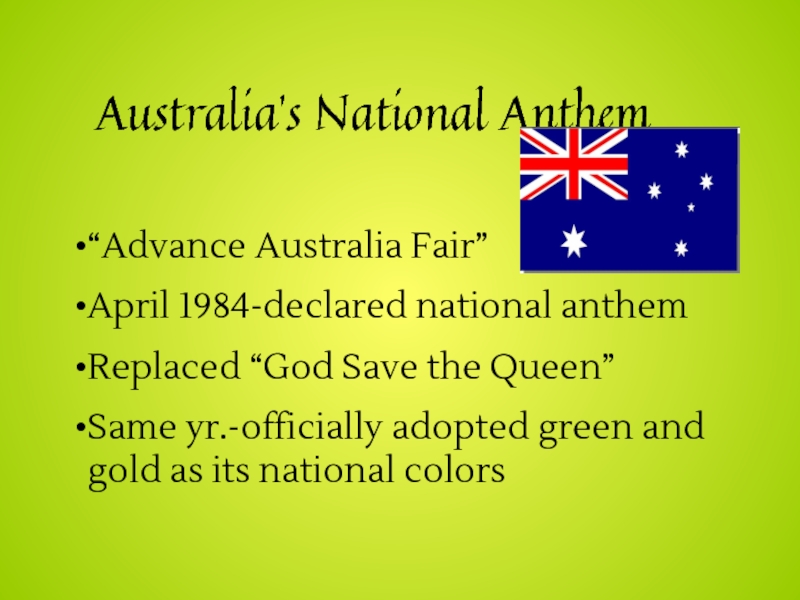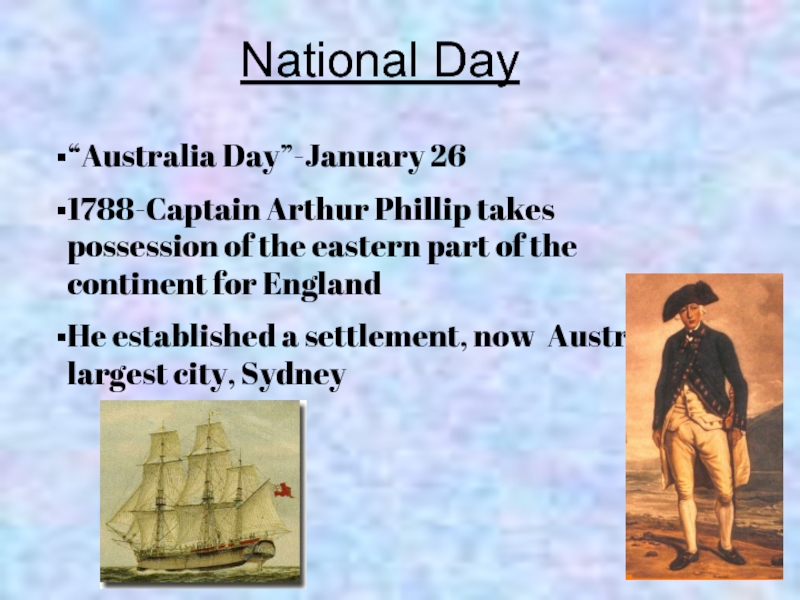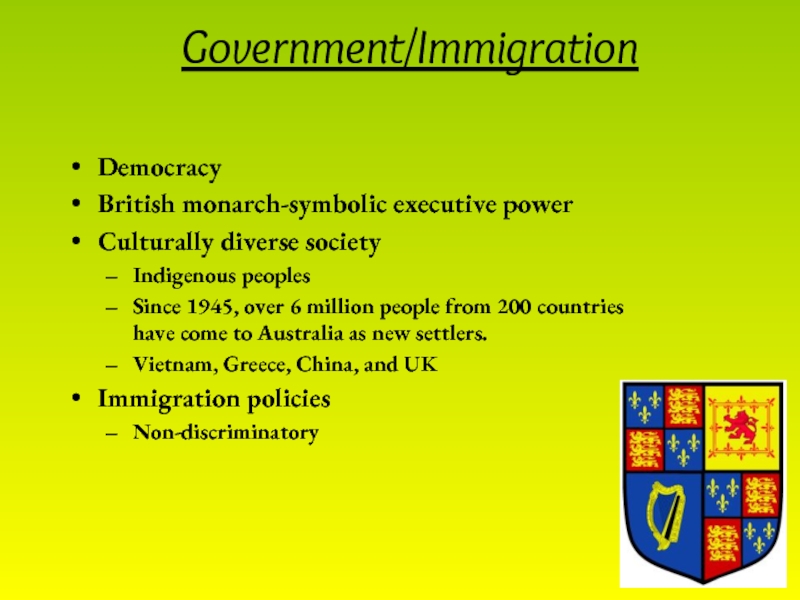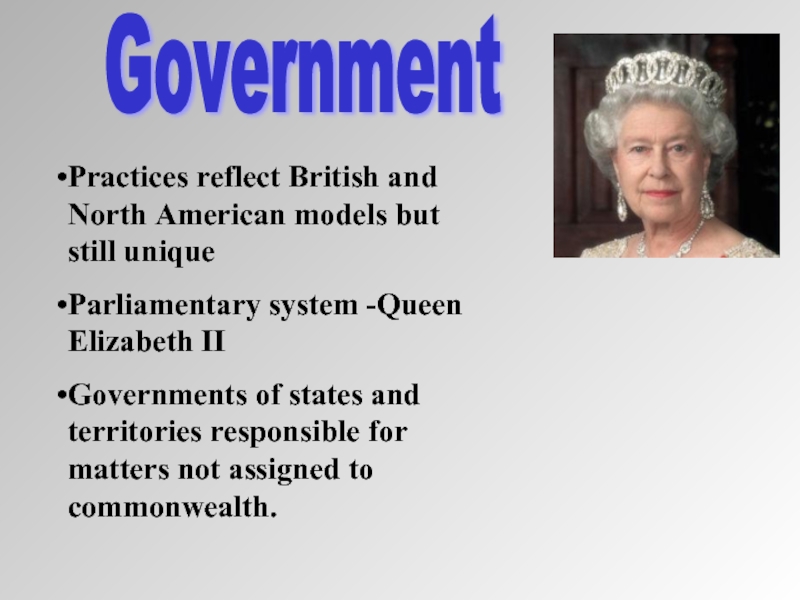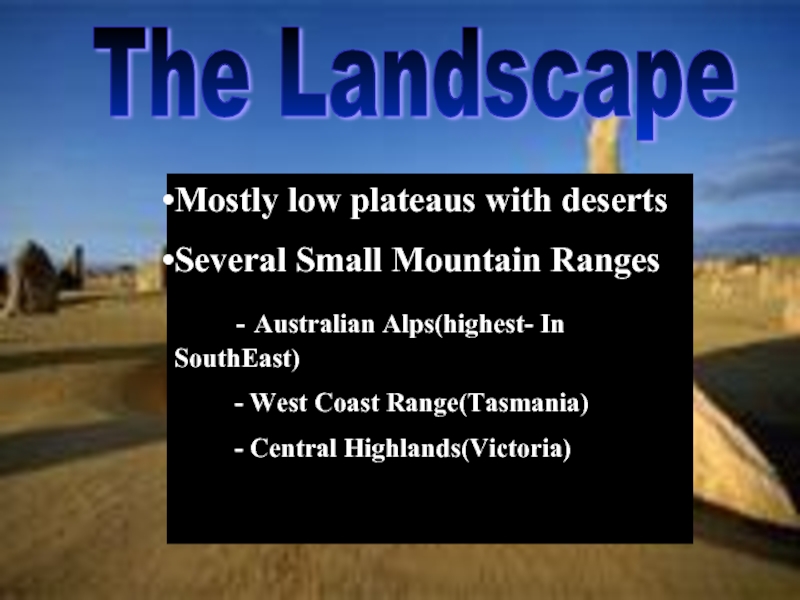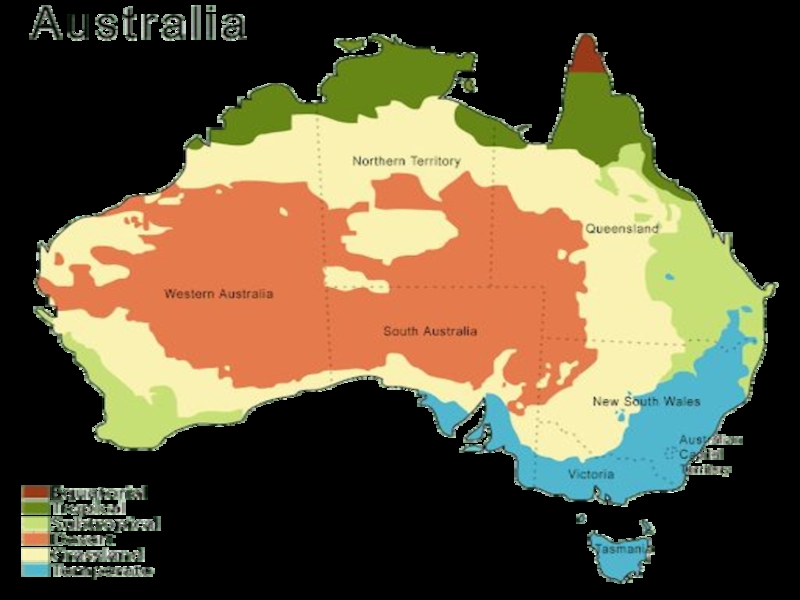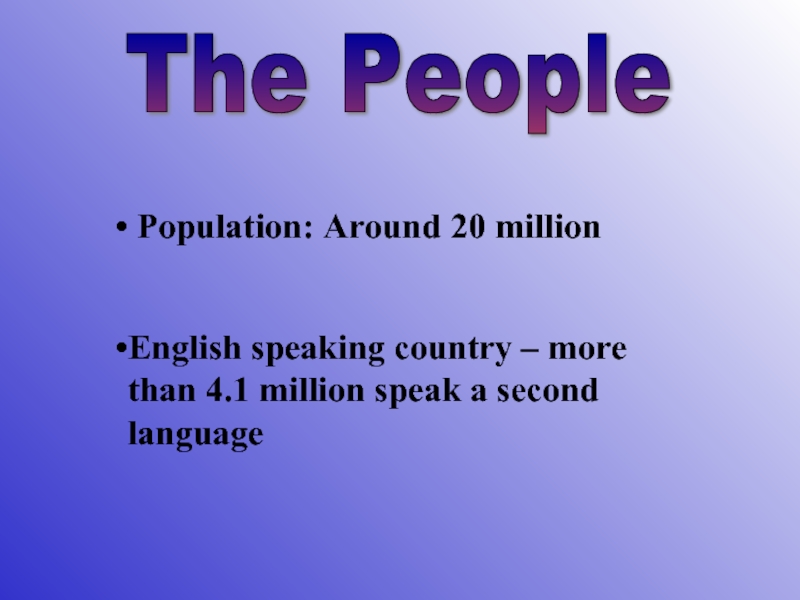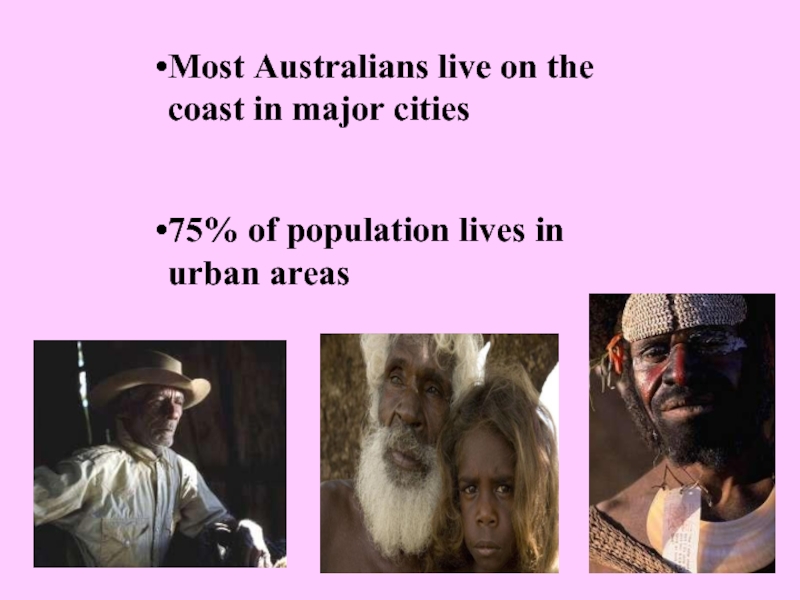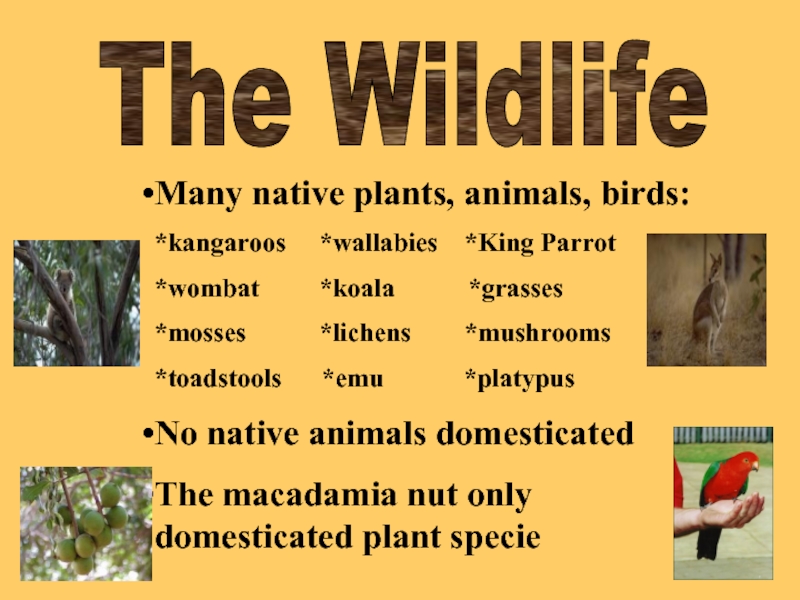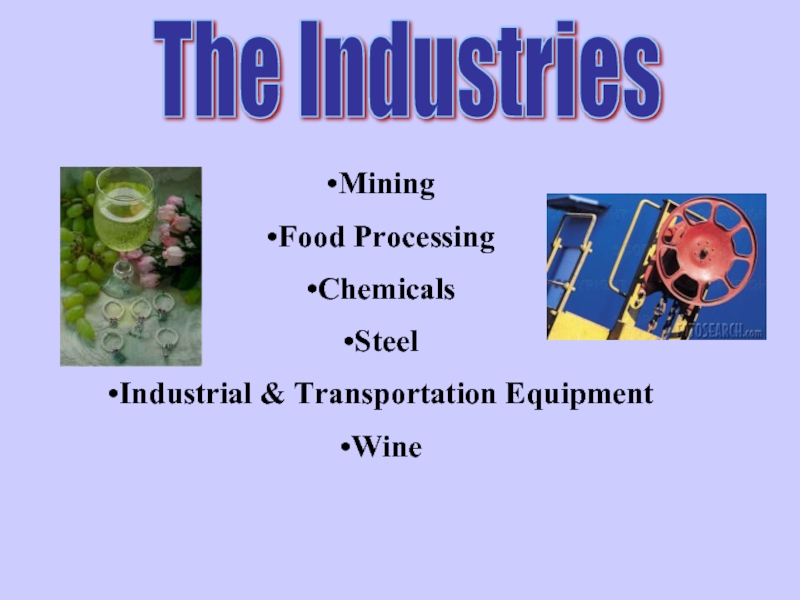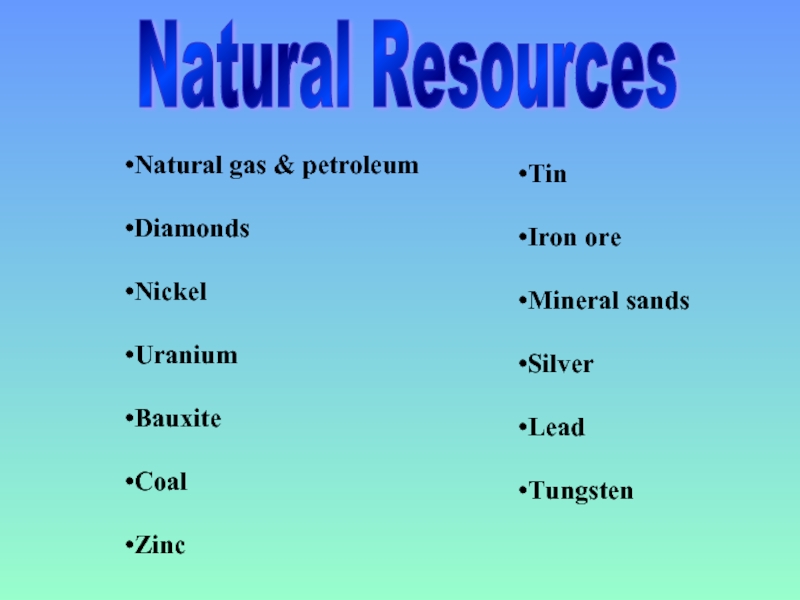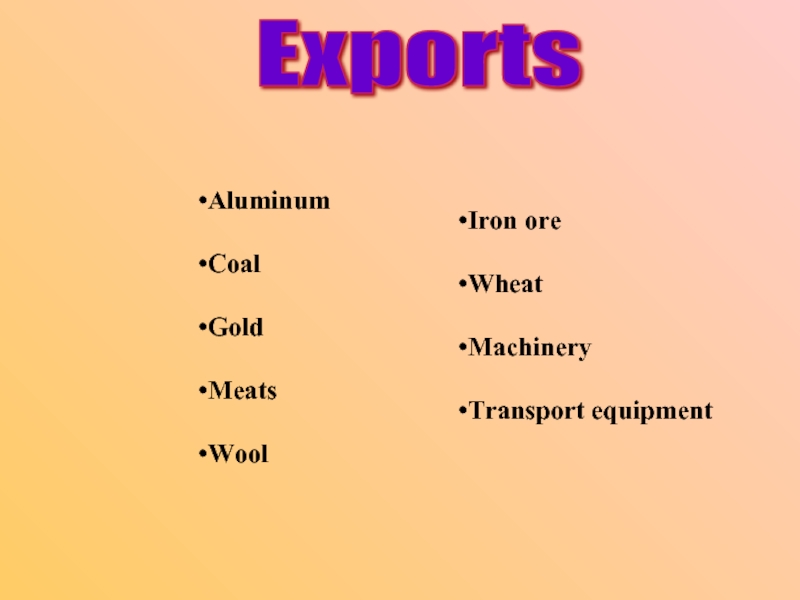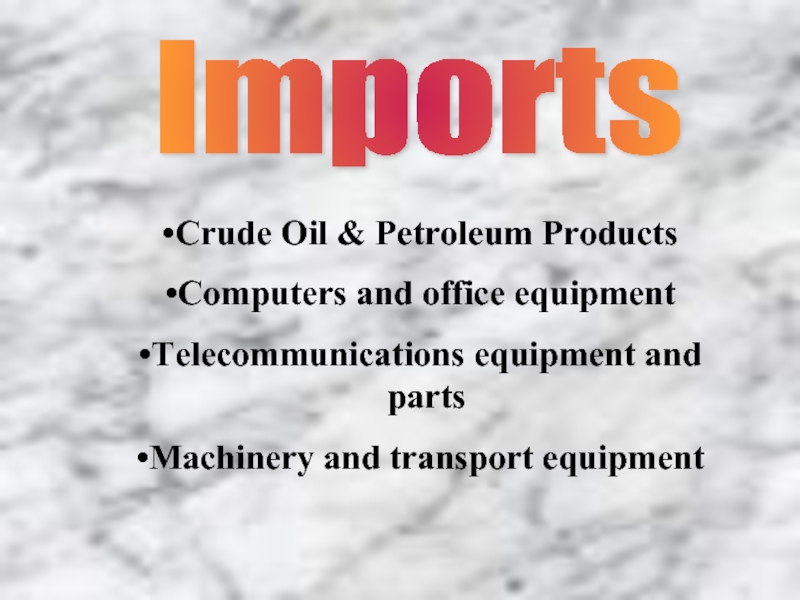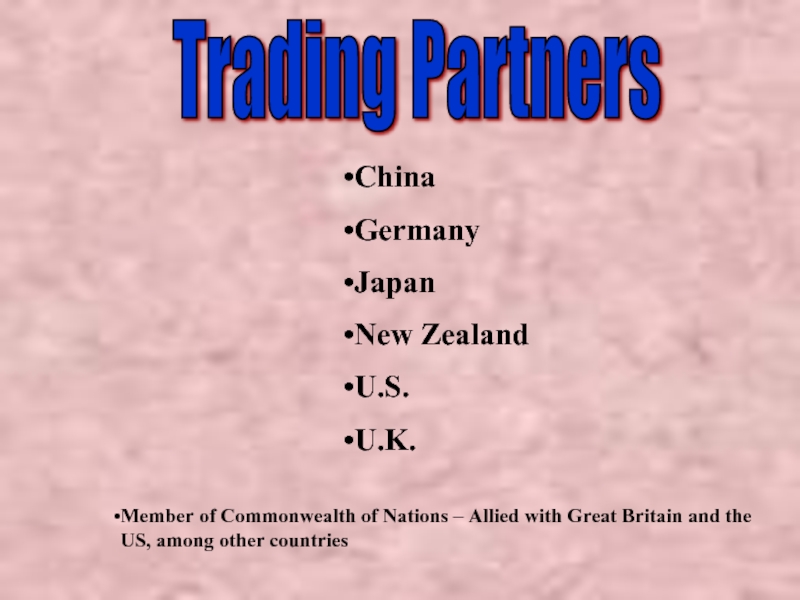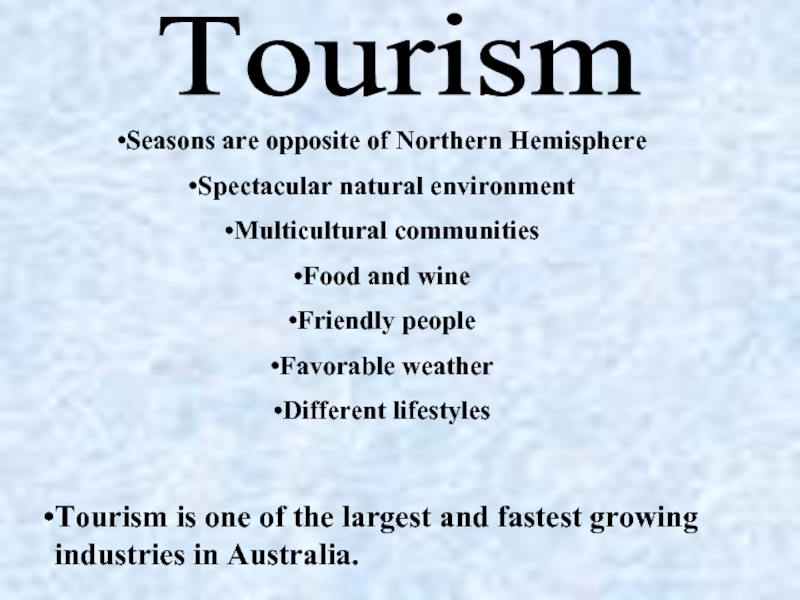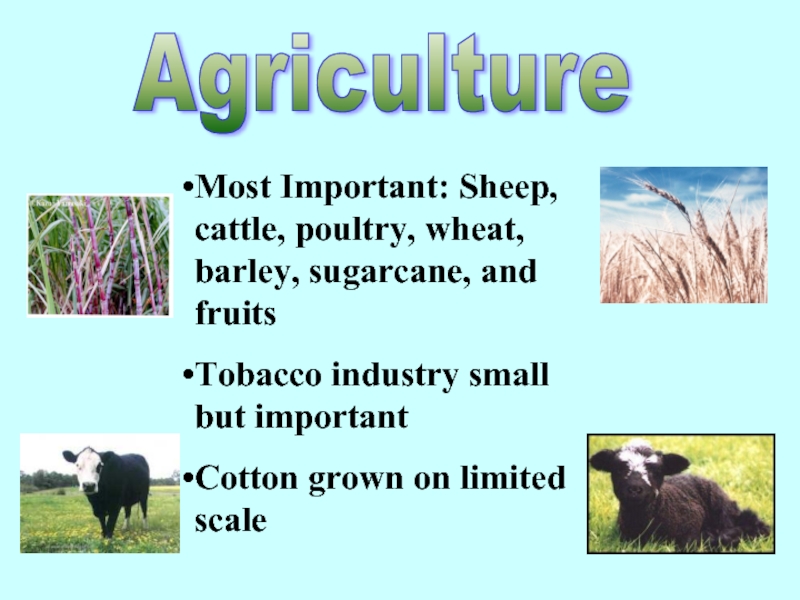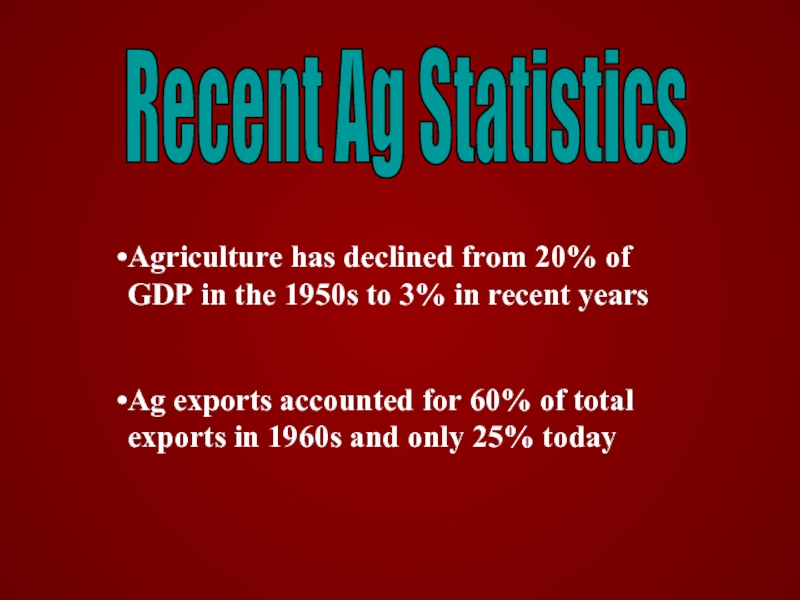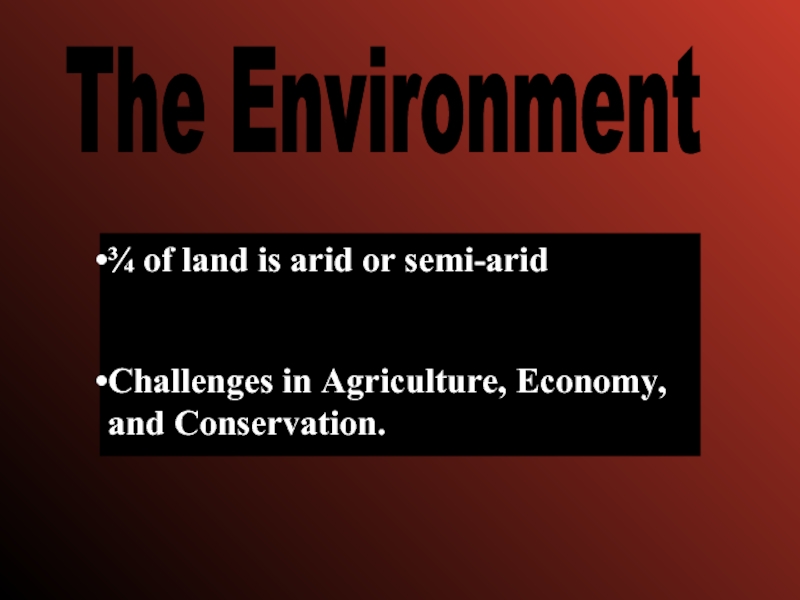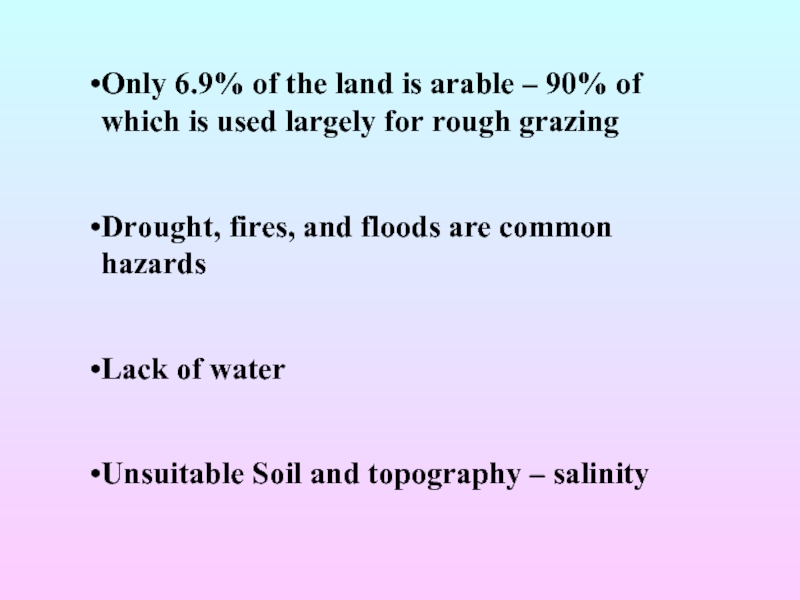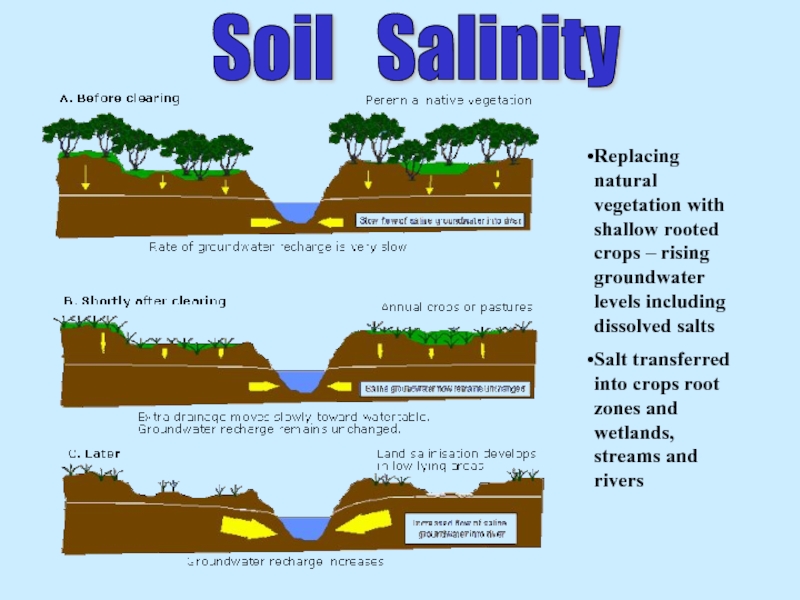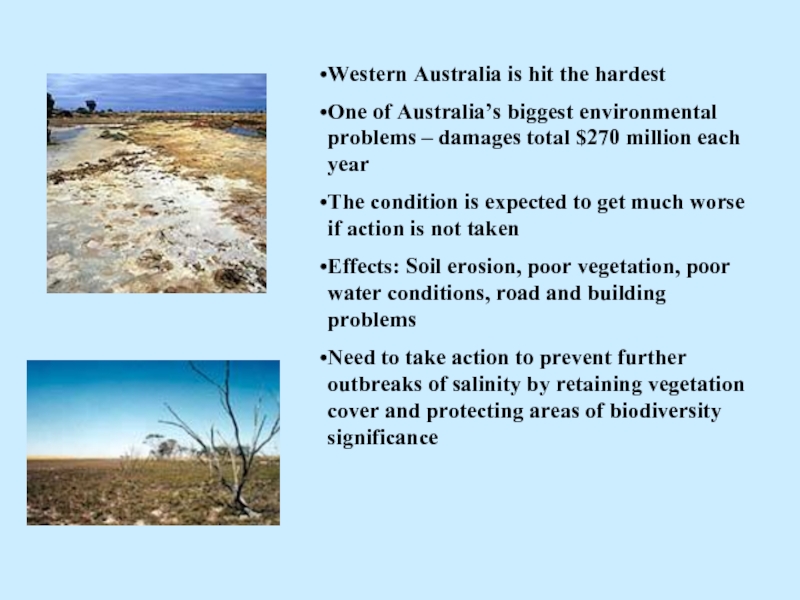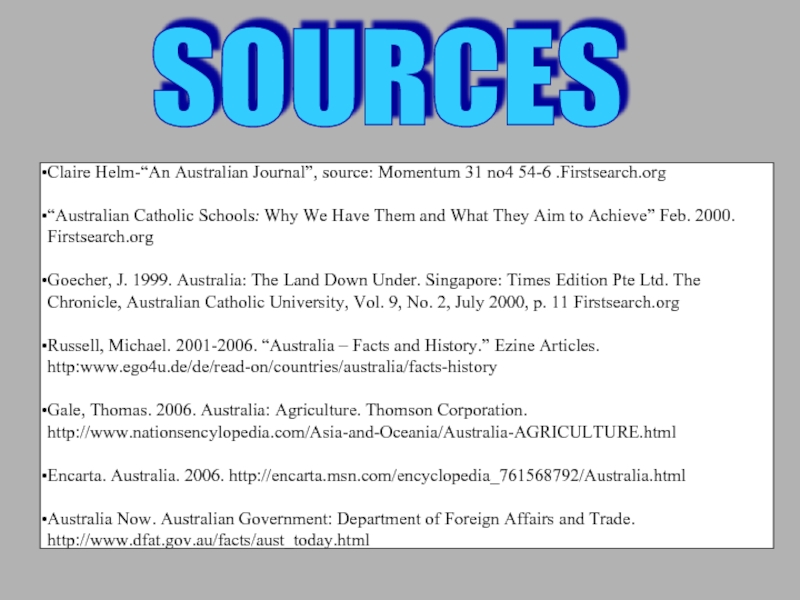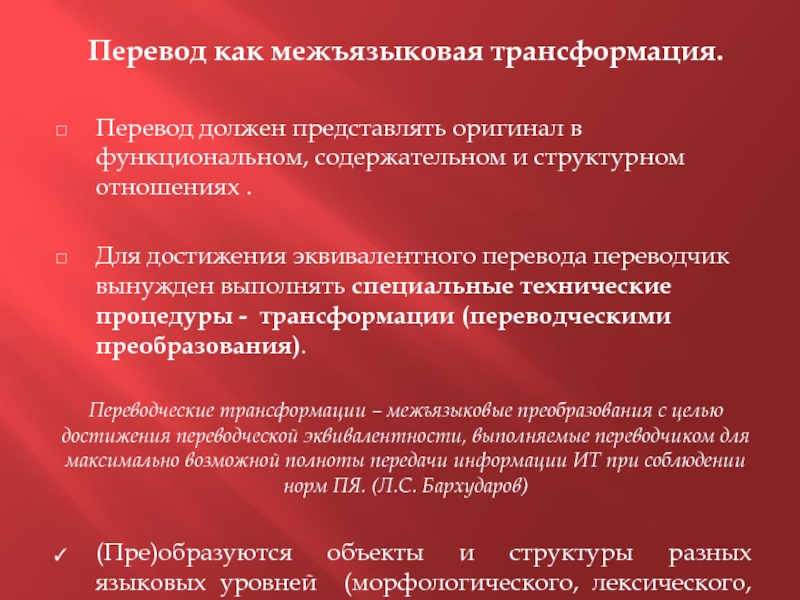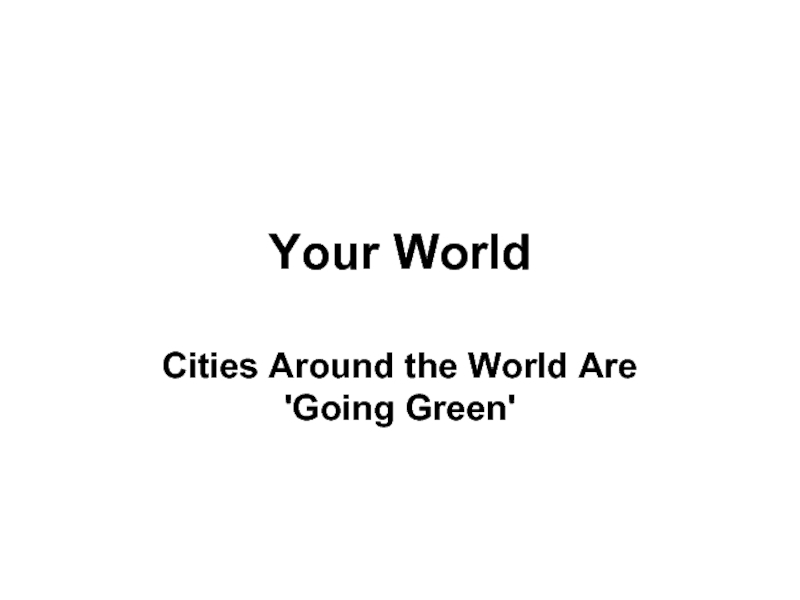- Главная
- Разное
- Дизайн
- Бизнес и предпринимательство
- Аналитика
- Образование
- Развлечения
- Красота и здоровье
- Финансы
- Государство
- Путешествия
- Спорт
- Недвижимость
- Армия
- Графика
- Культурология
- Еда и кулинария
- Лингвистика
- Английский язык
- Астрономия
- Алгебра
- Биология
- География
- Детские презентации
- Информатика
- История
- Литература
- Маркетинг
- Математика
- Медицина
- Менеджмент
- Музыка
- МХК
- Немецкий язык
- ОБЖ
- Обществознание
- Окружающий мир
- Педагогика
- Русский язык
- Технология
- Физика
- Философия
- Химия
- Шаблоны, картинки для презентаций
- Экология
- Экономика
- Юриспруденция
Australia презентация
Содержание
- 1. Australia
- 2. Australia's History
- 3. 1606-Dutch, Portuguese, and Spanish ships sighted Australia
- 4. 3 island territories in the Pacific: Norfolk
- 5. Geography (cont’d) 6th largest nation The
- 6. Six Colonies Free settlers and former prisoners
- 7. Attractions/Important Economic Enterprises Famous weapon: Aborigine’s boomerang Gold rushes/mining Sheep farming Grain
- 8. Liberal Legislation Free compulsory education Protected trade
- 9. Australia’s National Anthem “Advance Australia Fair”
- 10. National Day “Australia Day”-January 26 1788-Captain Arthur
- 11. Government/Immigration Democracy British monarch-symbolic executive power Culturally
- 12. Government Practices reflect British and North American
- 13. Government divided into 3 branches:
- 14. The Landscape Mostly low plateaus with deserts
- 16. The People Population: Around 20 million
- 17. Most Australians live on the coast in
- 18. The economy Stable Skilled Workforce Strong & Competetive High Growth Low Inflation & Interest Rate
- 19. Efficient Government Flexible Labor Market Very Competitive
- 20. The Wildlife Many native plants, animals, birds:
- 21. The Industries Mining Food Processing Chemicals Steel Industrial & Transportation Equipment Wine
- 22. Natural Resources Natural gas & petroleum
- 23. Exports Aluminum Coal
- 24. Imports Crude Oil & Petroleum Products Computers
- 25. Trading Partners China Germany Japan New Zealand
- 26. Tourism Seasons are opposite of Northern Hemisphere
- 27. Agriculture Most Important: Sheep, cattle, poultry, wheat,
- 28. Agriculture has declined from 20% of GDP
- 29. The Environment ¾ of land is arid
- 30. Only 6.9% of the land is arable
- 31. Replacing natural vegetation with shallow rooted crops
- 32. Western Australia is hit the hardest One
- 33. SOURCES Claire Helm-“An Australian Journal”, source: Momentum
Слайд 31606-Dutch, Portuguese, and Spanish ships sighted Australia
Australia was a part
1st inhabitants: Aborigines
Migrated there at least 40,000 yrs. ago from Southeast Asia
1616-became known as New Holland
Australia-comes from “Terra Australis”
1688-British arrived
1770-Great Britain claimed possession, calling it New South Wales
Слайд 43 island territories in the Pacific:
Norfolk Island
Christmas Island
Cocos Islands
Only nation to
Flattest and (after Antarctica) driest of continents
North: rainforests and vast plains
South East: snowfields
Centre: desert
East, South, and South West: fertile croplands
Geography
Слайд 5Geography (cont’d)
6th largest nation
The Capital is Canberra
Relatively small population
Only nation
Federation: 6 states, 2 territories
Largest state: Western Australia
1/3 of the country lies in the tropics
Слайд 6Six Colonies
Free settlers and former prisoners established six colonies:
New South Wales-1786
Tasmania-1825
Western
South Australia-1834
Victoria-1851
Queensland-1859
Слайд 7Attractions/Important Economic Enterprises
Famous weapon: Aborigine’s boomerang
Gold rushes/mining
Sheep farming
Grain
Слайд 8Liberal Legislation
Free compulsory education
Protected trade unionism w/industrial conciliation and arbitration
Secret ballot
Women’s
Maternity allowances
Sickness and old-age pensions
Слайд 9
Australia’s National Anthem
“Advance Australia Fair”
April 1984-declared national anthem
Replaced “God Save the
Same yr.-officially adopted green and gold as its national colors
Слайд 10National Day
“Australia Day”-January 26
1788-Captain Arthur Phillip takes possession of the eastern
He established a settlement, now Australia’s largest city, Sydney
Слайд 11Government/Immigration
Democracy
British monarch-symbolic executive power
Culturally diverse society
Indigenous peoples
Since 1945, over 6 million
Vietnam, Greece, China, and UK
Immigration policies
Non-discriminatory
Слайд 12Government
Practices reflect British and North American models but still unique
Parliamentary
Governments of states and territories responsible for matters not assigned to commonwealth.
Слайд 13Government divided into 3 branches:
2. Executive
3. Judiciary
National General Election must be held within 3 years of first meeting of new federal parliament.
1 vote per person voting system
Prime minister nominates members to serve on Cabinet – John Howard
Federal Parliament has Senate and House of Representatives.
Three major political parties: Labor Party, Liberal Party, National Party
Слайд 14The Landscape
Mostly low plateaus with deserts
Several Small Mountain Ranges
- West Coast Range(Tasmania)
- Central Highlands(Victoria)
Слайд 16The People
Population: Around 20 million
English speaking country – more
Слайд 18The economy
Stable
Skilled Workforce
Strong & Competetive
High Growth
Low Inflation & Interest Rate
Слайд 19Efficient Government
Flexible Labor Market
Very Competitive Business Sector
Workforce of 10 million highly
Almost half of workforce has university, trade, or diploma qualifications.
Monetary System based on Australian dollar
Weights and measures based on the metric system
Слайд 20The Wildlife
Many native plants, animals, birds:
*kangaroos *wallabies *King
*wombat *koala *grasses
*mosses *lichens *mushrooms
*toadstools *emu *platypus
No native animals domesticated
The macadamia nut only domesticated plant specie
Слайд 22Natural Resources
Natural gas & petroleum
Diamonds
Nickel
Uranium
Bauxite
Coal
Zinc
Tin
Iron ore
Mineral sands
Silver
Lead
Tungsten
Слайд 24Imports
Crude Oil & Petroleum Products
Computers and office equipment
Telecommunications equipment and parts
Machinery
Слайд 25Trading Partners
China
Germany
Japan
New Zealand
U.S.
U.K.
Member of Commonwealth of Nations – Allied with Great
Слайд 26Tourism
Seasons are opposite of Northern Hemisphere
Spectacular natural environment
Multicultural communities
Food and wine
Friendly
Favorable weather
Different lifestyles
Tourism is one of the largest and fastest growing industries in Australia.
Слайд 27Agriculture
Most Important: Sheep, cattle, poultry, wheat, barley, sugarcane, and fruits
Tobacco industry
Cotton grown on limited scale
Слайд 28Agriculture has declined from 20% of GDP in the 1950s to
Ag exports accounted for 60% of total exports in 1960s and only 25% today
Recent Ag Statistics
Слайд 29The Environment
¾ of land is arid or semi-arid
Challenges in Agriculture, Economy,
Слайд 30Only 6.9% of the land is arable – 90% of which
Drought, fires, and floods are common hazards
Lack of water
Unsuitable Soil and topography – salinity
Слайд 31Replacing natural vegetation with shallow rooted crops – rising groundwater levels
Salt transferred into crops root zones and wetlands, streams and rivers
Soil Salinity
Слайд 32Western Australia is hit the hardest
One of Australia’s biggest environmental problems
The condition is expected to get much worse if action is not taken
Effects: Soil erosion, poor vegetation, poor water conditions, road and building problems
Need to take action to prevent further outbreaks of salinity by retaining vegetation cover and protecting areas of biodiversity significance
Слайд 33SOURCES
Claire Helm-“An Australian Journal”, source: Momentum 31 no4 54-6 .Firstsearch.org
“Australian Catholic
Goecher, J. 1999. Australia: The Land Down Under. Singapore: Times Edition Pte Ltd. The Chronicle, Australian Catholic University, Vol. 9, No. 2, July 2000, p. 11 Firstsearch.org
Russell, Michael. 2001-2006. “Australia – Facts and History.” Ezine Articles. http:www.ego4u.de/de/read-on/countries/australia/facts-history
Gale, Thomas. 2006. Australia: Agriculture. Thomson Corporation. http://www.nationsencylopedia.com/Asia-and-Oceania/Australia-AGRICULTURE.html
Encarta. Australia. 2006. http://encarta.msn.com/encyclopedia_761568792/Australia.html
Australia Now. Australian Government: Department of Foreign Affairs and Trade.
http://www.dfat.gov.au/facts/aust_today.html
